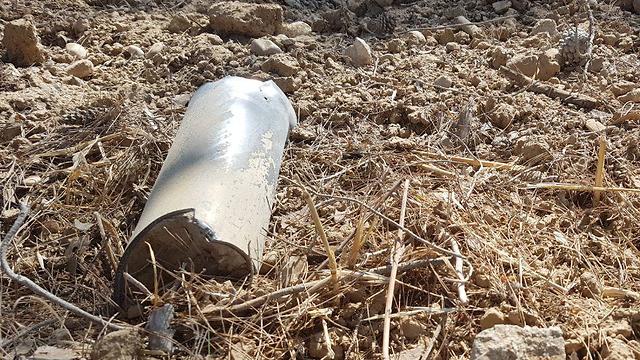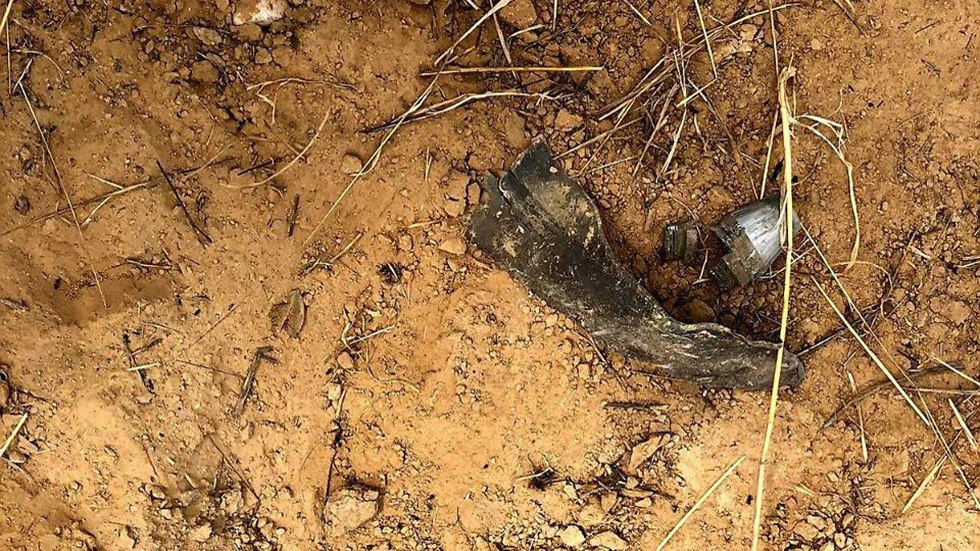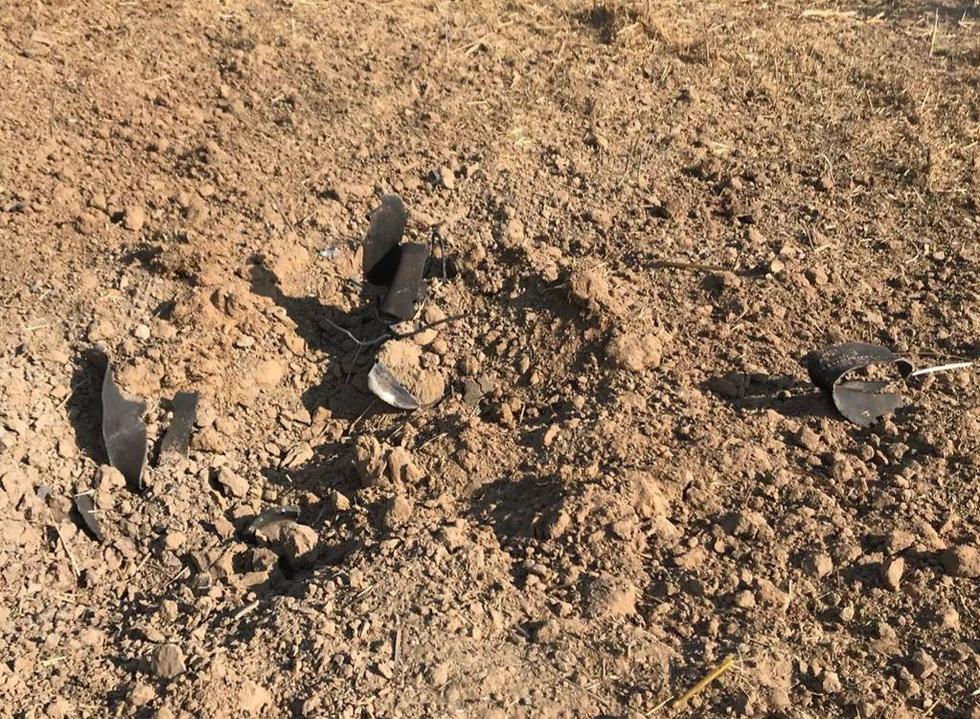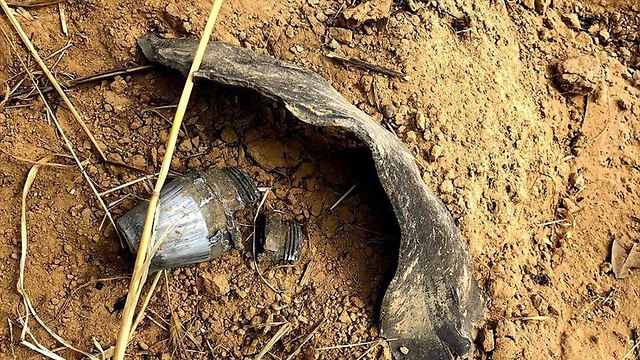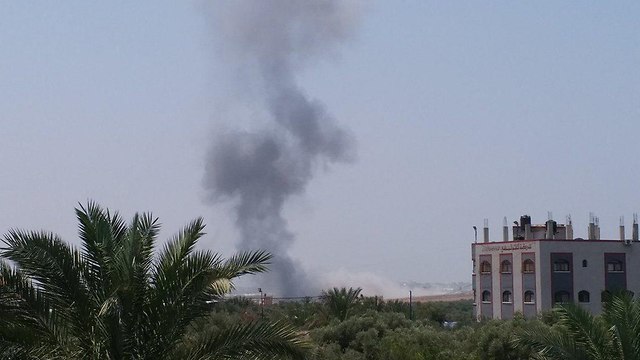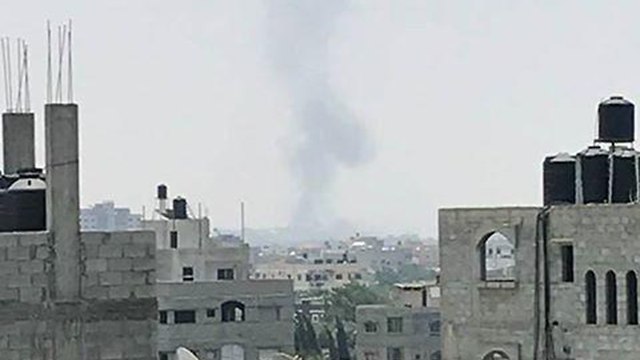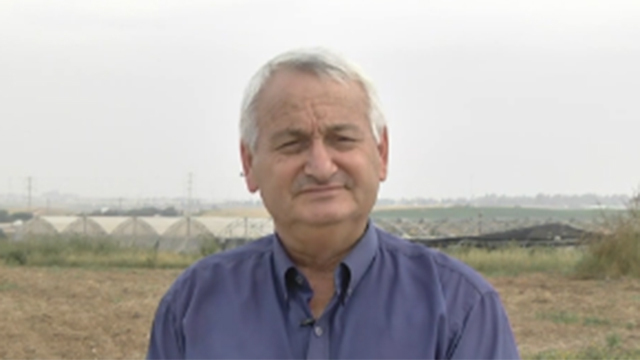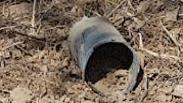
This Saturday marked four years since the start of Operation Protective Edge which was supposed to establish quiet on the southern border. However, the residents of the Gaza border communities find themselves in an almost identical atmosphere to that which preceded the Gaza incursion in 2014—constant Code Red alerts and sleepless nights.
On Saturday the streets of Moshav Netiv Ha’asara were empty, as many families decided to leave the moshav for the weekend in order to give their children a break from non-stop rocket fire from the Hamas-ruled strip.
Yael Nitzan, a mother of three and a local resident, explained her decision to pack up and head to relatives in Jerusalem for awhile.
"We returned from dinner with friends and an IDF attack woke us up around 1:30am … We didn’t sleep the whole night and just when we thought it was over and we went back to sleep, Code Red alerts started once. We started thinking what should we do today … We threw a few clothes into a car, and drove for a fun day out, then suddenly we were notified of another wave of IDF attacks, so we'll see where things go," Yael said.
Raz Shmilowitz, a father of four who has a two-week-old baby, said the current escalation is reminiscent of 2014.
"I woke up today with the smell of July 14 in the air ... there have been 15 Code Red alerts today so far and we understand that it won't stop. We are resilient in the community, but we are getting weaker from one round of fighting to another. We are a strong community but our resilience is erroding. You can’t pull a family away from home every few years ... We can’t go back to being refugees in our own country," Shmilowitz said.
"My wife said to me, 'Stop talking about the resilience of the residents and how strong we are. No one has the strength to enter another saga we have already been in, to pay such a heavy price, especially if it’s not getting us anywhere,’” he explained.
Samson Sidon, 47, a father of four, also told of his frustration from moving around in order to escape the terror.
"This is our life, our routine, we hold on to it. We were in Kibbutz Ortal in the previous round of fighting, and they were wonderful and they took care of us, but it's wasn’t our home … They are always talking about the IDF going into Gaza. We have elected officials who are supposed to solve this problem," he vented.
“We are no security experts, we are simple people who raise their children and love their community. If you’re unable to solve this problem, move it along. I feel like we are a herd, walking in circle. Each time a few mortar shells are fired and the fighting round continues. It is never over,” added Samson.
Aviva Fuld, the head of Nativ Ha'asara's local emergency team, said the government has a tough decision to make regarding the continuation of events.
"At this hour the local pool is usually buzzing with activity. It’s sad to see. I hope there will not be another round of fighting. But they don't leave us a lot of choices. They set the pace. I do not envy the government when it comes to decisions it has to make," she said.
The feelings of the residents of Sderot, which is only a few kilometers away from Netiv Ha’asara and which is among the communities that has suffered the most from Hamas attacks, are similar.
"It feels like Deja Vu, exactly like it was four years ago," says Guy Abergil, a Sderot resident.
Although Guy lives relatively far from the synagogue that was hit by a rocket on Saturday, he heard the explosion clearly.
"In Sderot everything moves fast and you know exactly where rockets fall. We felt the explosion. We can already differentiate between an Iron Dome interception and a direct hit, we’ve become specialists in this,” Guy added, saying he expects the government to find a solution to this situation as soon as possible.
"They must do something in order for this to stop. If we have to give them things in order for their lives to get better then let’s give them it. If we have to take over Gaza, then take it over. If we need to get rid off Hamas then make them disappear. We can’t constantly enter another round of fighting," the anxious resident complained.
Residents of Kibbutz Nahal Oz share the same sentiments regarding the escalation of hostilities over the weekend.
"When we understood that it was going to be another sleepless night, we moved to the safe room and stayed there for the rest of the night. The children ask a lot of questions and there are concerns. Currently we don’t know what’s going to happen in an hour," said local resident Yael Lachiani regarding the preparations of the Gaza border communities' residents in light of the latest escalation.
"On the one hand, we do not want this situation of 'no routine, no war' to continue, on the other hand, we certainly do not want war," Lachiani added. "There's only one thing we really want—it's peace and quiet."
Tom Oren-Danenberg, another Nahal Oz resident said she feels a lack of certainty regarding the future.
"The first Code Red alert caught us by surprise in the middle of the night and woke us up at about 1:30am. We were advised to sleep in the safe room because of the ongoing IDF attacks and we stayed there until the morning because we could not get back to sleep ... I have no idea what the next week will look like. It's a feeling of uncertainty, of not knowing what will happen tomorrow," he said.
“There is talk of a ceasefire, but no one knows where it’s really going, so it's hard to prepare for tomorrow. We want for things to get back to normal, but you really cannot know,” she explained.
"I want for someone to address the situation because it has really infuriated me that over the past few weeks no one has addressed the situation," Tom said.
"The fires continue, there are incidents on the border fence but everything is usual. My expectation is for them to respond and do something. Whatever the prime minister decides to do, we’ll support it—whether it is a war or a political solution, unless he decides not to decide. We don’t want to complain and cry, we simply want to resolve the situation,” he vented.
Alon Schuster, head of the Sha'ar HaNegev Regional Council hosted his family during the weekend amid the escalation in Gaza.
“My sister came from the north and my son came from Kfar Saba with my grandson … We try to stay close to the safe room. Even my one-year-old grandson got a chance to experience his first ever Code Red alert, which happened not too long ago,” explained Schuster.
Schuster argues that the solution to the tensions in the south will only be achieved through diplomatic means.
"The IDF can conduct surgical attacks but what really can change the equation is international, political and strategic moves. We are not the only ones who want the hooligans in Gaza to be dealt with, and we certainly have an expectation that this issue will be at the top of the agenda internationally and certainly in Israel," he said
“It is in the interest of Israel, as a Jewish and humane state, that two million people on the other side do not live under unreasonable and inhuman conditions, and that we will live a normal life … We cannot let the shock of this escalation stop us from pursuing diplomatic solutions. The prime minister promised this after Operation Protective Edge, and it is still the same prime minister, so he needs to concentrate all his power and deal with Gaza," Schuster concluded.















